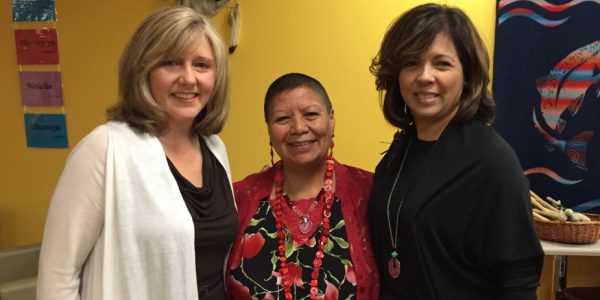Expanded services for women on the Downtown Eastside
Driving through the Downtown Eastside you’ll notice more men than women lined up to access services. Yet nearly 40 percent of the residents of the Downtown Eastside are women, many of them struggling to raise families, overcome substance use problems or pay their bills.
“The Downtown Eastside is home to some of British Columbia’s most vulnerable women,” says Health Minister Terry Lake. “By expanding access to services for women in this community, we can help reduce barriers to wellness and increase access to supports that will help improve their health.”
“We know that women, especially women who have experienced trauma or are vulnerable due to problematic substance use and or mental health issues have some unique challenges accessing appropriate health services in the Downtown Eastside, and we want to change that,” says Laura Case, Chief Operating Officer, Vancouver Community, Vancouver Coastal Health.
A new generation
As part of the Second Generation Strategy and in consultation with the community and women’s organizations, VCH is beginning to fulfill a commitment to create greater access and stronger connections for women to health care in the Downtown Eastside. Several new services will be implemented over the coming year.
Women’s Supervised Injection Services
Vancouver Coastal Health is moving forward on a proposal for women’s only supervised injection services. The vision is to partner with a community service provider to create a small site that is street level, accessible, and embedded within other community-based supportive women’s services.
“Although Insite provides injection services for both men and women – and 27 per cent of the clients of Insite are women – some vulnerable women feel safer and more supported when they are able to access services in women-only settings,” says Bonnie Wilson, Director, Vancouver Coastal Health. According to Bonnie, the goal is to create a safe and supported environment around substance use and harm reduction education. Once a location is identified, VCH will submit an application to Health Canada.
Women’s Intensive Case Management Team (ICMT)
A multidisciplinary, integrated outreach team will serve the most vulnerable, disenfranchised women of the Downtown Eastside. The Intensive Case Management Team will consist of outreach nurses, clinicians, a team leader and a peer support worker. The ICMT will link clients to other services and supports within the broader system, such as primary care, substance use treatment, housing, income assistance, parenting programs, and employment support.
The Women’s ICMT was made possible through a $3 million donation to the VGH and UBC Hospital Foundation.
Women’s Mobile Health Services Van
A specially equipped van will be used by the Women’s Intensive Case Management Team to connect with marginalized women who are less likely to engage with traditional health centres. This “pop-up health shop” will be agile enough to move as women move, allowing health care teams to provide services at parks and shelters in the Downtown Eastside.
“Mobility is so important,” says Leslie Bonshor, Executive Advisor, Vancouver Coastal Health Aboriginal Health Services. “Meeting women where they are it and getting to know them in their own setting helps to build relationships. These new initiatives support the work of the Second Generation Strategy and Vancouver Coastal Health’s commitment to provide services and programs in a culturally safe and sensitive environment,” says Leslie. It’s anticipated the mobile van will be operational by the spring of 2017.
Making a difference
Coast Salish Elder Roberta Price is a strong supporter of the Aboriginal Wellness Program and has worked in various capacities to improve health care services for women of the downtown eastside. “First I did it for my children, and now I want to make a difference for my grandchildren,” says Roberta. “We know that women, especially those living in poverty, are reluctant to access services, so we need to provide services in a comfortable caring environment.”


Deanna Friesen
Can’t wait for this all to begin! I am so proud to be a nurse working in community – DTES and seeing how all the planning is coming into place to accommodate and collaborate with vulnerable clients unable to access healthcare due to detrimental areas in their lives.